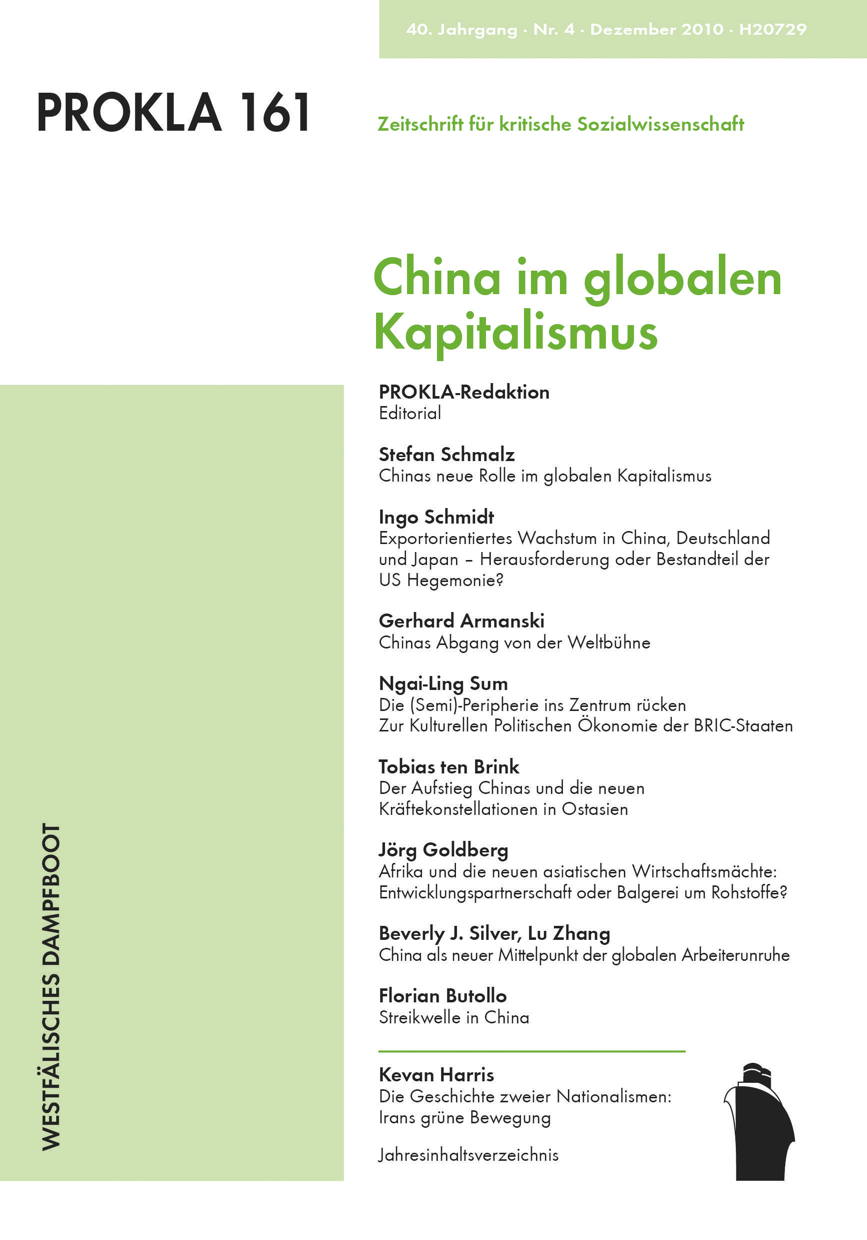Exportorientiertes Wachstum in China, Deutschland und Japan – Herausforderung oder Bestandteil der US Hegemonie?
DOI:
https://doi.org/10.32387/prokla.v40i161.370Schlagwörter:
China, USA, Deutschland, Japan, Hegemonie, Wachstum, WeltwirtschaftAbstract
The article compares export-led growth and world market integration in present-day China with the respective processes in Germany and Japan during the post-war boom. It is argued that the growth successes of these three countries represented or represent a challenge to US hegemony. From the 1990s until the current crisis, Germany and Japan were actually falling behind the US in terms of economic growth. China’s extremely high dependence on exports and investments makes it equally prone to sluggish world market growth that is still largely dependent on the US. If there is a challenge to US hegemony it comes from capitalism’s tendency towards stagnation that is leading to recurrent outbreaks of crisis. The overcoming of crises and US hegemony depends on political action by subordinated classes; it can’t be expected from the rise of new hegemonic powers.


